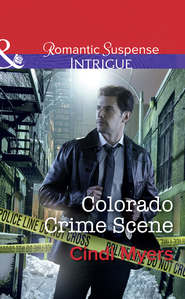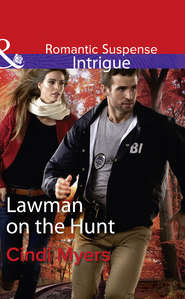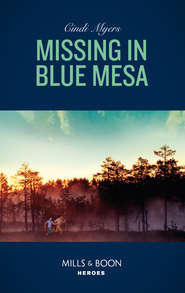По всем вопросам обращайтесь на: info@litportal.ru
(©) 2003-2024.
✖
Good, Bad...Better
Автор
Год написания книги
2018
Настройки чтения
Размер шрифта
Высота строк
Поля
He gave her a dark look. “If I never see Grant Truitt’s daughter again, I’ll die a happy man.” Maybe that wasn’t exactly true, but close enough. He didn’t need the kind of trouble a woman like Jennifer Truitt could bring into his life.
THOUGH SHE LIVED AT HOME, Jen tried to retain as much independence as possible. With her hectic practice schedule and her teaching job, she often went days without having a real conversation with her parents. But that evening she made it a point to stop by the living room and visit with them.
“Hey, Mama. Daddy.” She kissed her father on the cheek, then settled on the sofa next to her mother and pretended to study the abstract painting of swirls of gray and blue that hung over her father’s chair. He was quite proud of this newest acquisition, painted by some up-and-coming new artist. What would he think of Zach’s work? she wondered.
“Hello, Jennifer. To what do we owe—” Her father looked up from his paper, and his mouth dropped open as he stared at the tattoo peeking above the neckline of her dance leotard.
“What is it, dear?” Her mother frowned at her father.
“Exactly what I want to know.” He stood and crossed the room, looming over Jen.
She set her jaw and forced herself to meet his gaze. “It’s a calla lily.” She thought again of what Zach had said about the flower, and about her—innocent, yet sensuous—and felt a flush of pleasure.
“It’s a tattoo!” Her father spat the word like a curse. “Who did that to you?”
She’d expected him to be annoyed, but the strength of his anger surprised her. Honestly, did he think someone had attacked her and forced her to do this? “I paid to have it done.”
“Where?” he demanded.
“It doesn’t matter,” she said. “I just decided to do it, and did it.”
“I don’t know,” her mother said. “Aren’t you afraid you might catch some disease?”
“Your mother’s right. Some of those places are filthy and—”
“This was a very clean place. I’ve been in doctors’ offices that weren’t as clean as this place.”
“Tell me the name and I’ll check the health department records.”
She didn’t want to tell him, but if he pushed, he could probably find out anyway. “It’s called Austin Body Art. And I checked—it has a great reputation.”
His normally ruddy complexion darkened to the shade of an old bruise. “That’s Zach Jacobs’s place.” He looked at the tattoo again, like someone studying a mortal wound. “He did this?”
She clenched her hands in her lap, struggling not to fidget beneath his angry glare. “Actually, his sister Theresa did the tattoo, but the artwork is Zach’s.”
“So you’re on a first-name basis? You stay away from that thug.”
Honestly, if her father could only see how ridiculous he looked, making this kind of a fuss. The thought gave her courage, and she sat up straighter. “He’s not a thug. He’s an artist.”
“How do you know so much about him? Have you been seeing him before now? Is that why you suddenly decided to do something so totally out of character for you?”
“Maybe this is in character for me. More so than anything I’ve done in years.”
“I don’t believe it. It has to be Jacobs’s doing.” He turned and stalked back to his chair. “I know him and his kind. They do everything they can to flout authority.”
“Zach isn’t flouting authority.” Unless you called having long hair and dressing in leather “flouting authority.” Which her father probably would. Still, despite his appearance, Zach hadn’t looked like a hardened criminal. “He even has a No Smoking sign in his shop.”
“That sign is required by city ordinance. You stay away from him.”
She blew out a sharp breath. “I can’t believe you’re getting this upset over a tattoo.”
“It looks ridiculous!” he said. “How many dancers do you see in pink leotards and tattoos?”
She looked down at her own rose-colored leotard. Okay, so maybe it didn’t have the same cachet as a leather vest. But her new tat would look right at home with the hip-hop threads she’d be wearing as a member of Razzin’!. “Maybe I’ll buy a new wardrobe to go with the tattoo,” she said.
“I suppose the next thing I know, you’ll come in dressed like one of those half-naked pop stars I see on TV.”
“What difference does it make to you how I dress?”
Her mother stepped between them as they glared at each other. “Both of you need to calm down.” She looked at her husband. “You know Jen’s always been very responsible.” Then she patted Jen’s shoulder. “And you know your father’s only looking out for your best interests.”
That was the argument he always used to justify his interference in her life. And always before, she’d let him get away with it. But too much was at stake to give in this time. “I know you both want the best for me,” she said, struggling to keep her voice steady. “But I have to start making my own decisions for my life—who my friends are, where I’ll live and work.”
Her father sat back in his chair, like an emperor on a throne, frown lines making a deep V in his forehead. “If this is about your moving to Chicago, we’ve already had this discussion. There is no way you’re going off to live alone halfway across the country, and that’s final.” He picked up his paper and shook it open, a signal the argument had ended.
“Why do you say that? This is the chance of a lifetime for me.” She leaned forward, fists clenched. Hadn’t they already been through this a hundred times? Why couldn’t he understand? “This is a dance company respected all over the world, and Razzin’! is already a tremendous hit.”
He laid aside his paper once more. “There’s nothing wrong with staying here and working with the Austin dance group. With your talent, you’ll have plenty of opportunities there.”
Obviously, he wasn’t listening to her. She turned to her mother, whom she could usually count on to get through to her dad. “Mom, you see that this is a fantastic opportunity for me, don’t you?”
Worry lines creased her mother’s brow. “It’s hard to think of you going off on your own to a dangerous city,” she said.
The way her mother talked, you’d think Jen was going to the moon. “How is Chicago any more dangerous than Austin? This isn’t some small town with no crime.”
“Chicago is a bigger city with more crime,” her father said. “And you’ll have no one to look after you there.”
Meaning he wouldn’t be there. “I’m not stupid,” she said. “I’m not going to cruise bad neighborhoods at night or put myself in harm’s way.”
“Of course you’re not stupid.” He looked offended by the very idea. “But you’re naive. You’ve led a very sheltered life.” His expression softened. “That’s my fault, I know. I’ll admit I preferred it that way.”
“If you really want the best for me, you’ll give me your blessing to go to Chicago. I’ll never have another chance like this.”
He shook his head. “I can’t do that. You don’t know the first thing about making it on your own. You’ve never rented an apartment or had to deal with your car leaving you stranded or been sick with no one to look after you. You can’t even imagine all the things that can happen to a woman by herself.”
He made her sound like a child who couldn’t find her way in out of the rain. Obviously, he saw her that way because she’d let him. All those years of doing whatever he’d wanted her to do had led him to believe she was helpless. She was paying for her complacency now. “I can learn those things,” she said. “I can make it on my own.”
Once more he looked offended. “Why should you have to, as long as I’m here?” He nodded. “I intend to make sure you remain safe.”
“I can’t believe we’re even having this conversation.” What had happened to the indulgent, loving father who had always given her whatever she’d wanted?
But that was when she’d been the sweet, good girl who never made waves. “I’m going to Chicago,” she said, her voice firm.
“No, you’re not.” His expression was equally rigid.
“I don’t see how you can stop me.”
“I have friends in Chicago. They can use their influence to persuade the dance company to send you home.”











